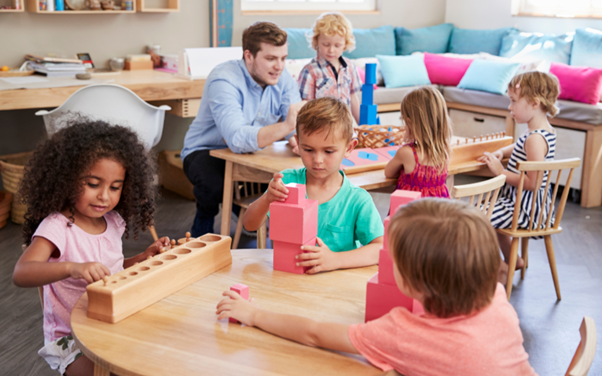As education systems around the world adapt to evolving technologies and pedagogical methods, the preschool sector is also undergoing significant transformations. In Singapore, private preschools, including Montessori playgroups, are on the verge of adopting new trends that promise to enhance early childhood education. In 2024, expect preschools to focus on a blend of technology integration, child-centred learning approaches, and a deeper involvement of parents in the educational journey. Here are the top trends you need to watch for in the future of private preschools in Singapore.
1. Technology Integration in Classrooms
In 2024, the use of technology in private preschools will continue to grow. Interactive learning tools and digital resources will play an increasingly significant role in the classroom. Private preschools in Singapore are likely to introduce more educational apps, tablets, and other tech resources that encourage children to explore concepts through interactive play.
2. Focus on Emotional Intelligence
Beyond academic knowledge, preschools are increasingly recognising the importance of emotional intelligence (EQ). Montessori playgroups in Singapore, in particular, have long focused on fostering emotional development alongside cognitive growth. Moving into 2024, expect private preschools to place greater emphasis on teaching children how to recognise, express, and manage their emotions.
3. Personalised Learning Paths
One trend gaining traction is the shift towards individualised learning. In Montessori playgroups, allowing children to learn at their own pace has been a core concept for years. Private preschools in Singapore are expected to expand on this by creating tailored learning paths that cater to each child’s unique strengths and challenges.
4. Sustainability and Eco-Friendly Practices
The global emphasis on sustainability is making its way into preschools. In 2024, private preschools in Singapore are expected to adopt more eco-friendly practices within their curriculum and operations. These include introducing green activities such as gardening, recycling, and outdoor exploration. Classrooms may be designed with sustainable materials, and schools may opt for eco-friendly products to teach children about environmental stewardship from a young age.
5. Hybrid Learning Models
While hybrid learning models have traditionally been more prevalent in primary and secondary education, the concept is expected to gain momentum in private preschools in Singapore by 2024. Montessori playgroups may incorporate remote learning options or virtual activities alongside in-person interactions. This flexible approach allows continuous education, even in unexpected situations, such as school closures or illness.
6. Increased Focus on Outdoor Learning
Outdoor learning is becoming an essential part of early childhood education, particularly in Montessori preschools. In 2024, expect private preschools in Singapore to integrate outdoor play and nature-based learning into their daily routines more regularly. Research shows that spending time outdoors not only improves physical health but also enhances cognitive abilities and social skills.
7. Greater Parental Involvement
Parents play a critical role in the success of any educational programme, and 2024 will see an increase in parental involvement in private preschools. Parents’ testimonials for preschool experiences show that a collaborative relationship between educators and parents contributes to the overall development of the child. Preschools may provide parents with regular updates on their child’s progress, hold workshops, and create opportunities for parents to participate in classroom activities.
8. Emphasis on Multi-Language Education
With Singapore’s multilingual environment, private preschools will continue to focus on language development, incorporating exposure to multiple languages from an early age. In 2024, preschools are likely to introduce more structured programmes for teaching children additional languages, such as Mandarin and Tamil, alongside English.
9. Social-Emotional Learning Tools
In 2024, expect to see more structured social-emotional learning (SEL) tools implemented in private preschools across Singapore. Programmes that teach empathy, mindfulness, and emotional regulation are gaining popularity.
10. Data-Driven Insights for Personalised Feedback
The use of data analytics to personalise education is a growing trend across all levels of education. In preschools, data collected from child assessments and behavioural observations will be used to provide individualised feedback.
Conclusion
The future of private preschools in Singapore is filled with exciting developments, from integrating technology and personalised learning to fostering emotional intelligence and sustainability. As these trends continue to shape the landscape of early childhood education, parents should stay informed and consider how each trend could benefit their child’s growth.
For more information about these educational trends, contact Brighton Montessori today.

